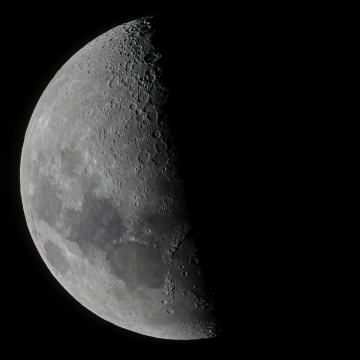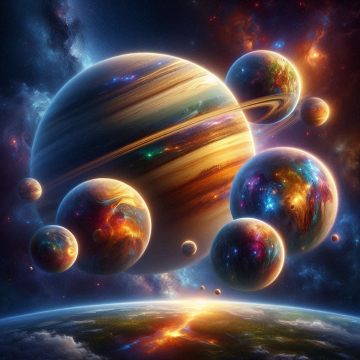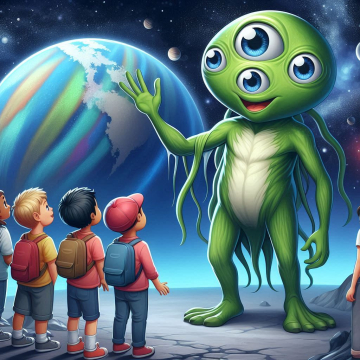The full moon has been a source of fascination and mystery throughout human history. All kinds of influences are attributed to it, from madness to natural phenomena. One of the most widespread myths is that the full moon affects babies, altering their behavior and sleep.
Myths and Popular Beliefs
The idea that the full moon affects babies is a deeply rooted myth in many cultures around the world. Some of the most common beliefs include:
Agitation and Unusual Behavior
It is said that babies tend to be more restless and exhibit unusual behavior during full moon nights. It has been claimed that they cry more, have difficulty falling asleep and are more prone to tantrums.
Higher Birth Rate
Another myth is that the full moon is related to an increase in the birth rate. It is believed that more women go into labor during this lunar phase.
Changes in Sleep
It is argued that babies do not sleep as well during full moon nights. This has been associated with more frequent awakenings and poorer sleep quality.
Increased Emotional Turmoil
Some people believe that the full moon can make babies more emotional and sensitive, resulting in more crying and difficulty calming them.
Is there a Scientific Base?
Of course, let's delve into the lack of scientific basis supporting the belief that the full moon affects babies. Over the decades, extensive studies have been conducted in an attempt to establish a correlation between the moon phase and infant behavior, but to date, no solid evidence has been found to support this claim.
First, several scientific studies have investigated the relationship between the full moon and infant behavior. Most of these studies have not found any significant connection between the two variables. Experts in the field of infant sleep and pediatrics have concluded that variations in infant behavior are the result of a multitude of complex factors, such as diet, environment, health status, and routine, rather than the lunar phase.
The notion that more women go into labor during a full moon also lacks strong scientific support. Birth rates are influenced by a number of factors, such as the season of the year, the length of the day and the availability of medical care, but the full moon has not been shown to be a significant factor.
Regarding babies' sleep, no scientific evidence has been found to support the idea that the full moon negatively affects their quality of sleep. Sleep disturbances in babies are common and can be due to various factors, such as fatigue, hunger or discomfort, but the full moon has not been identified as an influential variable.
Finally, emotional turmoil in infants is usually attributed to unmet basic needs, such as hunger, discomfort, or tiredness. Attributing this behavior to the full moon lacks solid scientific basis.
Factors That Influence Babies' Behavior
Babies' behavior is influenced by a number of factors, but the full moon is not one of them. Some of the main factors that can affect babies' behavior include:
Feeding
Hunger is one of the most common reasons why a baby may be fussy or cry. Babies have specific nutritional needs and require regular feeding.
Fatigue
Babies need a significant amount of sleep for their development. Fatigue can lead to unusual behavior, such as irritability and crying.
Changes in the Environment
Changes in a baby's environment, such as temperature, lighting, or noise, can influence his behavior. The full moon is not related to these changes.
Health & Wellness
Babies may be restless or show changes in behavior if they are experiencing health problems, such as colic, rashes, or infections.
Routine and Consistency
Babies thrive on predictable routines. Lack of routine or changes in daily routine can affect a baby's behavior.
The Influence of Culture and Beliefs
Without a doubt, let's delve into the role of culture and beliefs in the perception of the influence of the full moon on babies. Despite the lack of solid scientific evidence to support this belief, cultural and popular beliefs play a significant role in the perception of this phenomenon.
First, it's important to note that long-held beliefs can influence how people interpret their babies' behavior during a full moon. This phenomenon is known as "confirmation bias" and refers to the human tendency to perceive patterns even when they do not exist. When people believe that the full moon affects babies, they are more likely to associate any changes in their children's behavior with the moon phase, thus reinforcing the belief in this influence.
Culture plays an important role in perpetuating these beliefs. In some cultures, the full moon is associated with myths and legends that often include beliefs about its influence on human behavior. These beliefs can be passed down from generation to generation and become an integral part of the way the world is understood and interpreted.
Additionally, culture may also influence how concerns about baby behavior during the full moon are addressed. In some cultures, it is common to resort to specific practices, such as performing rituals or wearing amulets, to protect babies from the perceived negative influence of the full moon. These practices can provide comfort to parents and caregivers, but it is important to recognize that they are not scientifically based.






